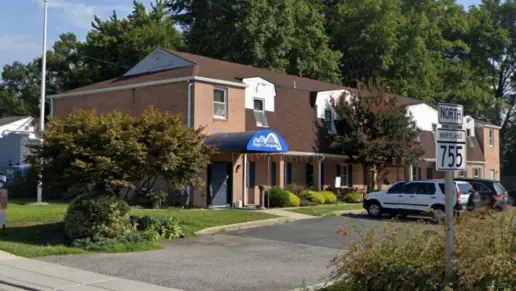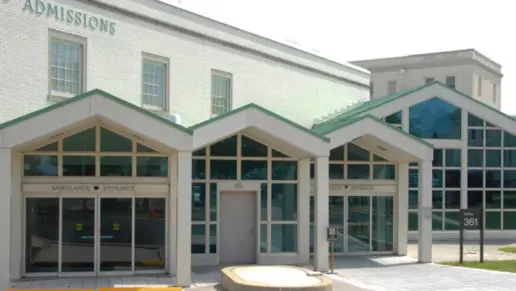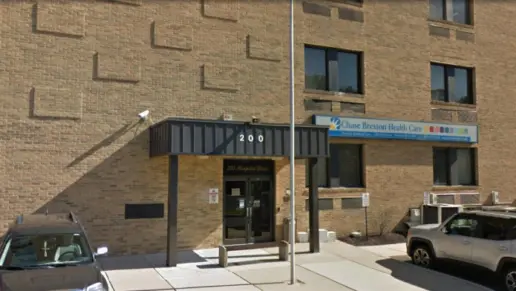This place has unethical practices with their urinalysis procedures that are alarming. For their drug tests, they only run immunoassay screening and do not opt to send positive results for confirmation with gas chromatography/mass spectrometer. Immunoassay results are consid ...
About Recovery Center of Maryland, LLC
Recovery Network - 25th Street is a subsidiary of the University Psychological Center in Baltimore, Maryland. This mental health and drug rehab center offers drug rehab services that include medication assisted treatment, residential treatment, intensive outpatient programs, general outpatient services, and aftercare programming for young adults and adult men and women. Specialized services are available for gender specific groups, mothers with children, justice involved clients, and transgender persons. Spanish services are also available.
Medication assisted treatment is available for clients to ease withdrawal pains and reduce cravings. Licensed clinicians administer FDA approved Suboxone and buprenorphine to discourage relapse. Clients are monitored during dosing and throughout their treatment. Medication assisted treatment is available in selected programs.
Recovery Network’s 25th Street is an intensive 6-12 month treatment program that is staffed 24 hours a day. Those best suited for residential treatment are unable to live on their own and participate in addiction treatment. Their program is based on the disease concept of chemical dependency, as well as 12 Step programs. Two tracks are available in the inpatient program: a medium intensity level that includes 20-35 hours of counseling per week, and a low intensity level that includes 5 hours of life skills development per week. The primary goal for each patient is reentry back into the community.
Intensive outpatient treatment at Recovery Network requires between 9 and 12 hours of treatment each week, with a focus on individual and group counseling. Patients are expected to attend sessions three to four times each week in a structured treatment setting. This provides more stability for those who are at a higher risk of relapse than those in traditional outpatient programming.
Traditional outpatient counseling is provided in the form of individual, group, or a mixture of these services. This program meets less frequently than intensive outpatient, but still provides support, education, and community.
Aftercare treatment is provided to individuals who have completed inpatient or intensive outpatient treatment. The focus of this program is on continuing relapse prevention and maintaining positive coping skills while reintegrating back into a normal routine and lifestyle. Individual and group therapy are primary treatment modalities. Patients typically attend group therapy once per week as a continued maintenance support. Individual counseling may also continue on a regular basis.
Recovery Network is accredited by the Commission on Accreditation of Rehabilitation Facilities (CARF).
Facility Overview
Latest Reviews
Rehab Score
Gallery
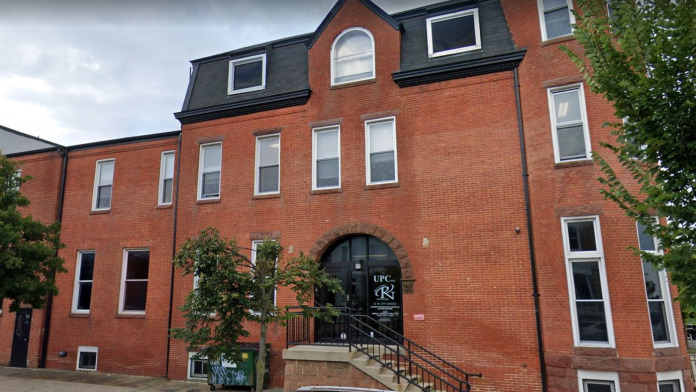
Location
Other Forms of Payment
Private insurance refers to any kind of healthcare coverage that isn't from the state or federal government. This includes individual and family plans offered by an employer or purchased from the Insurance Marketplace. Every plan will have different requirements and out of pocket costs so be sure to get the full details before you start treatment.
Self-pay involves paying for treatment out of your own pocket. You can use savings or credit, get a personal loan, or receive help from family and friends to fund your treatment. If you don't have insurance or your insurance plan doesn't cover a specific program, self-pay can help ensure you still get the care you need.
Financial aid can take many forms. Centers may have grants or scholarships available to clients who meet eligibility requirements. Programs that receive SAMHSA grants may have financial aid available for those who need treatment as well. Grants and scholarships can help you pai for treatment without having to repay.
Medicaid is a state based program that helps lower-income individuals and families pay for healthcare. Medicaid covers addiction treatment so those enrolled can use their coverage to pay for rehab. When a program accepts Medicaid the client often pays very little or nothing out of their own pocket.
Medicare is a federal program that provides health insurance for those 65 and older. It also serves people under 65 with chronic and disabling health challenges. To use Medicare for addiction treatment you need to find a program that accepts Medicare and is in network with your plan. Out of pocket costs and preauthorization requirements vary, so always check with your provider.
Addiction Treatments
Levels of Care
Treatments
The goal of treatment for alcoholism is abstinence. Those with poor social support, poor motivation, or psychiatric disorders tend to relapse within a few years of treatment. For these people, success is measured by longer periods of abstinence, reduced use of alcohol, better health, and improved social functioning. Recovery and Maintenance are usually based on 12 step programs and AA meetings.
Once a person has become addicted to a substance, drug rehab in Maryland is often necessary to overcome that addiction. These programs provide the tools individuals need to manage the physical, mental, and emotional issues involved and begin a successful recovery journey.
Many of those suffering from addiction also suffer from mental or emotional illnesses like schizophrenia, bipolar disorder, depression, or anxiety disorders. Rehab and other substance abuse facilities treating those with a dual diagnosis or co-occurring disorder administer psychiatric treatment to address the person's mental health issue in addition to drug and alcohol rehabilitation.
A combined mental health and substance abuse rehab has the staff and resources available to handle individuals with both mental health and substance abuse issues. It can be challenging to determine where a specific symptom stems from (a mental health issue or an issue related to substance abuse), so mental health and substance abuse professionals are helpful in detangling symptoms and keeping treatment on track.
Opioid rehabs specialize in supporting those recovering from opioid addiction. They treat those suffering from addiction to illegal opioids like heroin, as well as prescription drugs like oxycodone. These centers typically combine both physical as well as mental and emotional support to help stop addiction. Physical support often includes medical detox and subsequent medical support (including medication), and mental support includes in-depth therapy to address the underlying causes of addiction.
Programs



Clinical Services
Group therapy is any therapeutic work that happens in a group (not one-on-one). There are a number of different group therapy modalities, including support groups, experiential therapy, psycho-education, and more. Group therapy involves treatment as well as processing interaction between group members.
In individual therapy, a patient meets one-on-one with a trained psychologist or counselor. Therapy is a pivotal part of effective substance abuse treatment, as it often covers root causes of addiction, including challenges faced by the patient in their social, family, and work/school life.
Trauma therapy addresses traumatic incidents from a client's past that are likely affecting their present-day experience. Trauma is often one of the primary triggers and potential causes of addiction, and can stem from child sexual abuse, domestic violence, having a parent with a mental illness, losing one or both parents at a young age, teenage or adult sexual assault, or any number of other factors. The purpose of trauma therapy is to allow a patient to process trauma and move through and past it, with the help of trained and compassionate mental health professionals.
Whether a marriage or other committed relationship, an intimate partnership is one of the most important aspects of a person's life. Drug and alcohol addiction affects both members of a couple in deep and meaningful ways, as does rehab and recovery. Couples therapy and other couples-focused treatment programs are significant parts of exploring triggers of addiction, as well as learning how to build healthy patterns to support ongoing sobriety.
lcoholism and drug abuse have devastating effects on everyone closest to the addict. We believe that recovery from addiction is most successful when the family is involved in treatment. The following services are available to those families willing to participate in a patient’s treatment: family education, family therapy, couples counseling, multi-family group meetings, counseling for significant others, introduction to 12-steps programs and parenting education.
Life skills trainings involve all the skills a person must have in order to function successfully in the world. These include time management, career guidance, money management, and effective communication. Truly successful addiction recovery is based on the ability to not only live substance-free, but to thrive. Life skills teaches the practical necessities of functioning in society, which sets clients up for success in life, and therefore sobriety.
Amenities
-
Private Setting
Staff & Accreditations
Staff
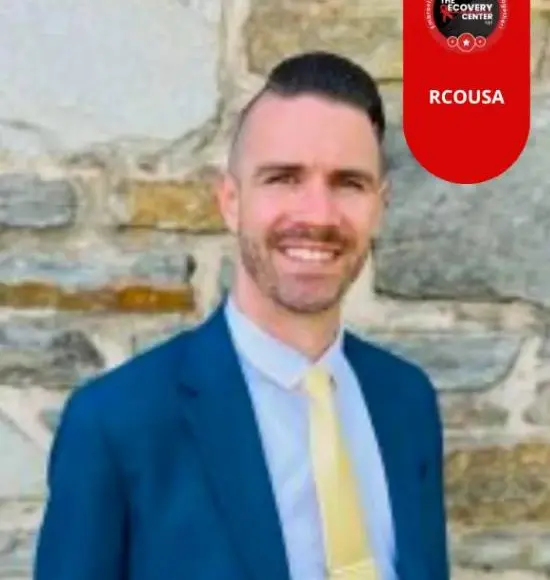
VP
Accreditations

The Commission on Accreditation of Rehabilitation Facilities (CARF) is a non-profit organization that specifically accredits rehab organizations. Founded in 1966, CARF's, mission is to help service providers like rehab facilities maintain high standards of care.
CARF Accreditation: Yes
Contact Information
211 E 25th St
Baltimore, MD 21218
